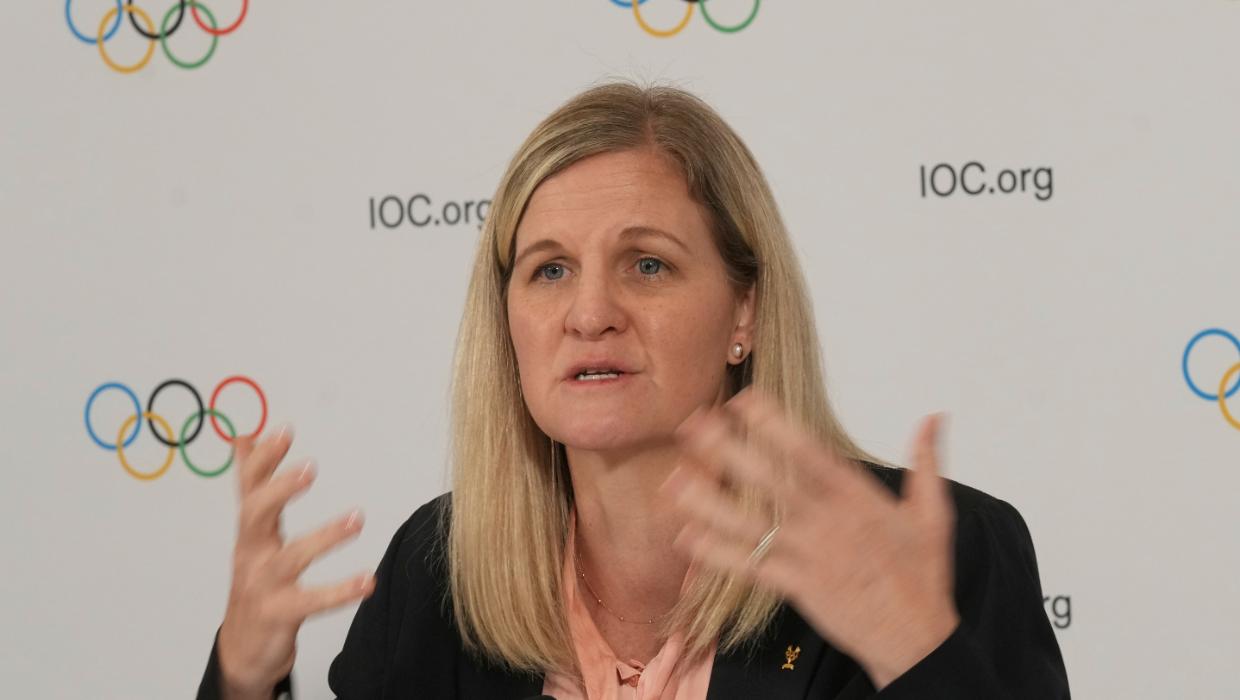Lifestyle
Olympics Set to Ban Transgender Athletes from Women’s Events

The International Olympic Committee (IOC) is poised to implement a ban on transgender athletes from competing in women’s events. This decision follows a thorough examination of scientific evidence regarding athletic performance and gender identity. The potential policy change is expected to be announced ahead of the 2024 Summer Olympics, scheduled to take place in Paris, France.
In recent months, the IOC has gathered input from experts in sports science, medicine, and ethics. This review focused on the physiological differences that may impact competition fairness. According to sources involved in the discussions, the evidence suggests that transgender women may retain significant performance advantages even after undergoing hormone therapy.
The debate surrounding transgender athletes has intensified, particularly in light of controversies surrounding participation in elite sports. Supporters of the ban argue that allowing transgender women to compete in women’s events undermines the principle of fair competition. They contend that biological differences can create an uneven playing field, impacting opportunities for cisgender female athletes.
Conversely, advocates for transgender inclusion emphasize the importance of recognizing gender identity. They argue that sports should be inclusive and that many transgender athletes face significant barriers to participation. The IOC has previously stated its commitment to ensuring that all athletes, regardless of gender identity, have the opportunity to compete.
The potential policy shift aligns with growing voices in various sports organizations advocating for stricter regulations on transgender participation. In recent months, several governing bodies have re-evaluated their policies, leading to heightened scrutiny of transgender athletes in competitive events.
As the IOC prepares to formalize its stance, the implications for the upcoming Olympics remain significant. Athletes, coaches, and sports organizations are closely monitoring developments, as the decision could set a precedent for other international sports federations. This move could reshape the landscape of competitive sports, prompting further discussions on gender identity and fairness in athletics.
The IOC’s upcoming announcement is expected to draw both support and criticism from various factions within the sporting community. The ongoing debate underscores the complexities of gender identity in sports, as stakeholders navigate the balance between inclusivity and fairness. As the deadline for the Olympics approaches, all eyes will be on the IOC to see how it addresses these critical issues.
-

 Sports2 months ago
Sports2 months agoNetball New Zealand Stands Down Dame Noeline Taurua for Series
-

 Entertainment2 months ago
Entertainment2 months agoTributes Pour In for Lachlan Rofe, Reality Star, Dead at 47
-

 Entertainment1 month ago
Entertainment1 month agoNew ‘Maverick’ Chaser Joins Beat the Chasers Season Finale
-

 Sports2 weeks ago
Sports2 weeks agoEli Katoa Rushed to Hospital After Sideline Incident During Match
-

 Sports2 months ago
Sports2 months agoSilver Ferns Legend Laura Langman Criticizes Team’s Attitude
-

 Politics1 month ago
Politics1 month agoNetball NZ Calls for Respect Amid Dame Taurua’s Standoff
-

 Sports1 week ago
Sports1 week agoJamie Melham Triumphs Over Husband Ben in Melbourne Cup Victory
-

 Entertainment3 months ago
Entertainment3 months agoKhloe Kardashian Embraces Innovative Stem Cell Therapy in Mexico
-

 World3 months ago
World3 months agoPolice Arrest Multiple Individuals During Funeral for Zain Taikato-Fox
-

 Sports3 months ago
Sports3 months agoGaël Monfils Set to Defend ASB Classic Title in January 2026
-

 Entertainment2 months ago
Entertainment2 months agoTyson Fury’s Daughter Venezuela Gets Engaged at Birthday Bash
-

 Sports2 months ago
Sports2 months agoHeather McMahan Steps Down as Ryder Cup Host After Controversy





















